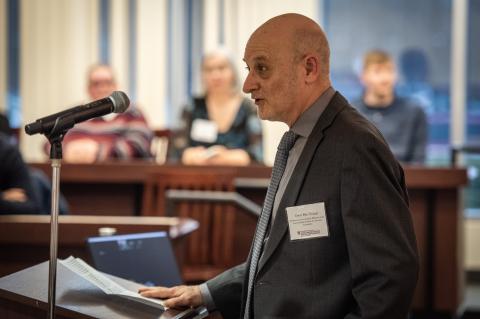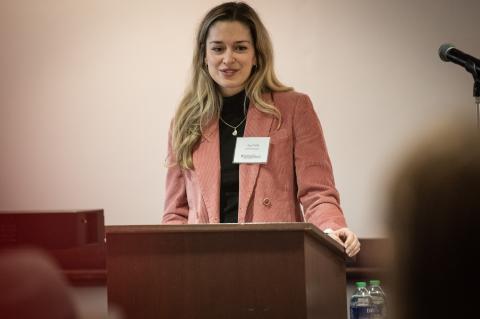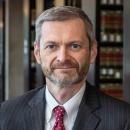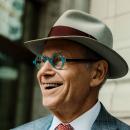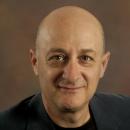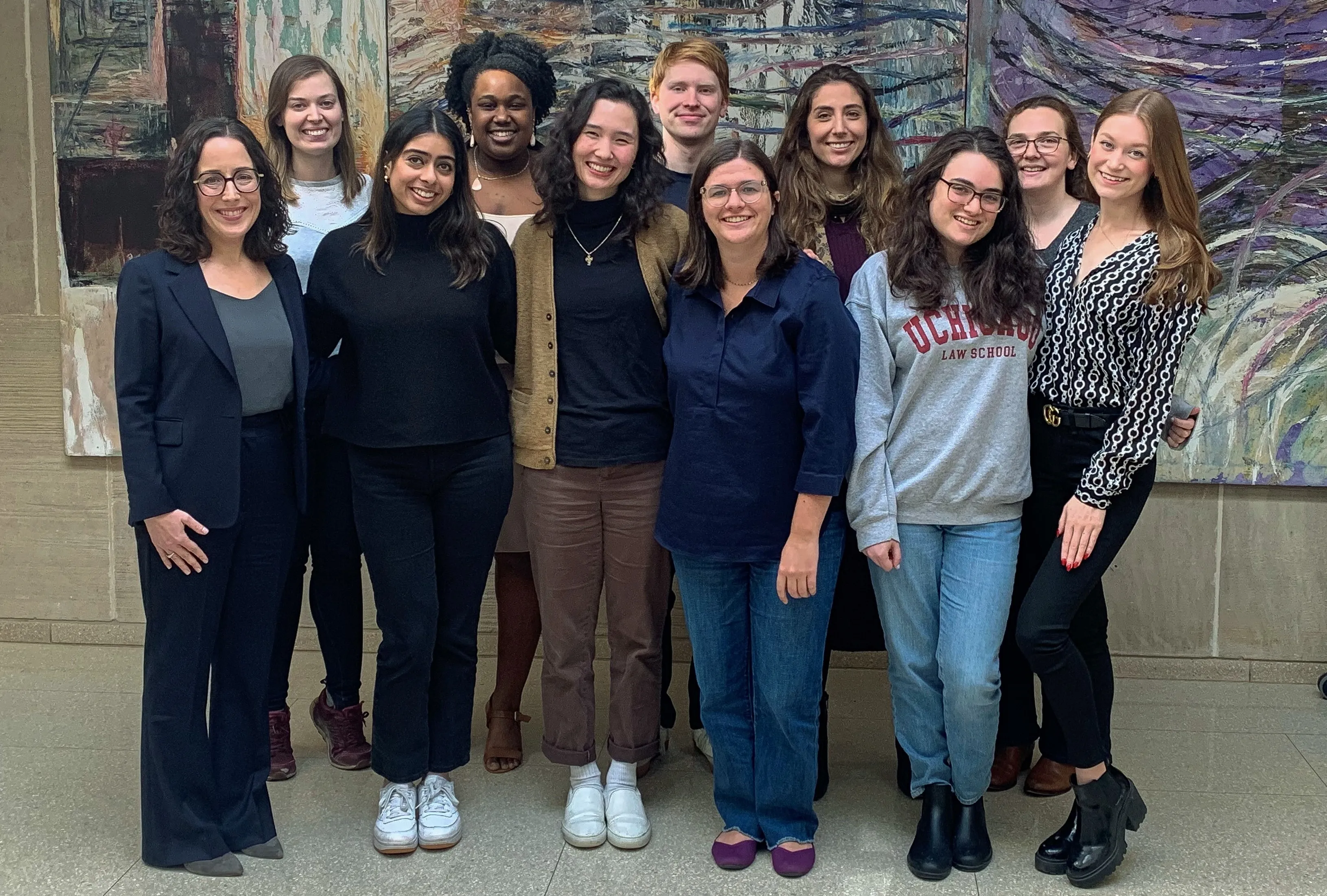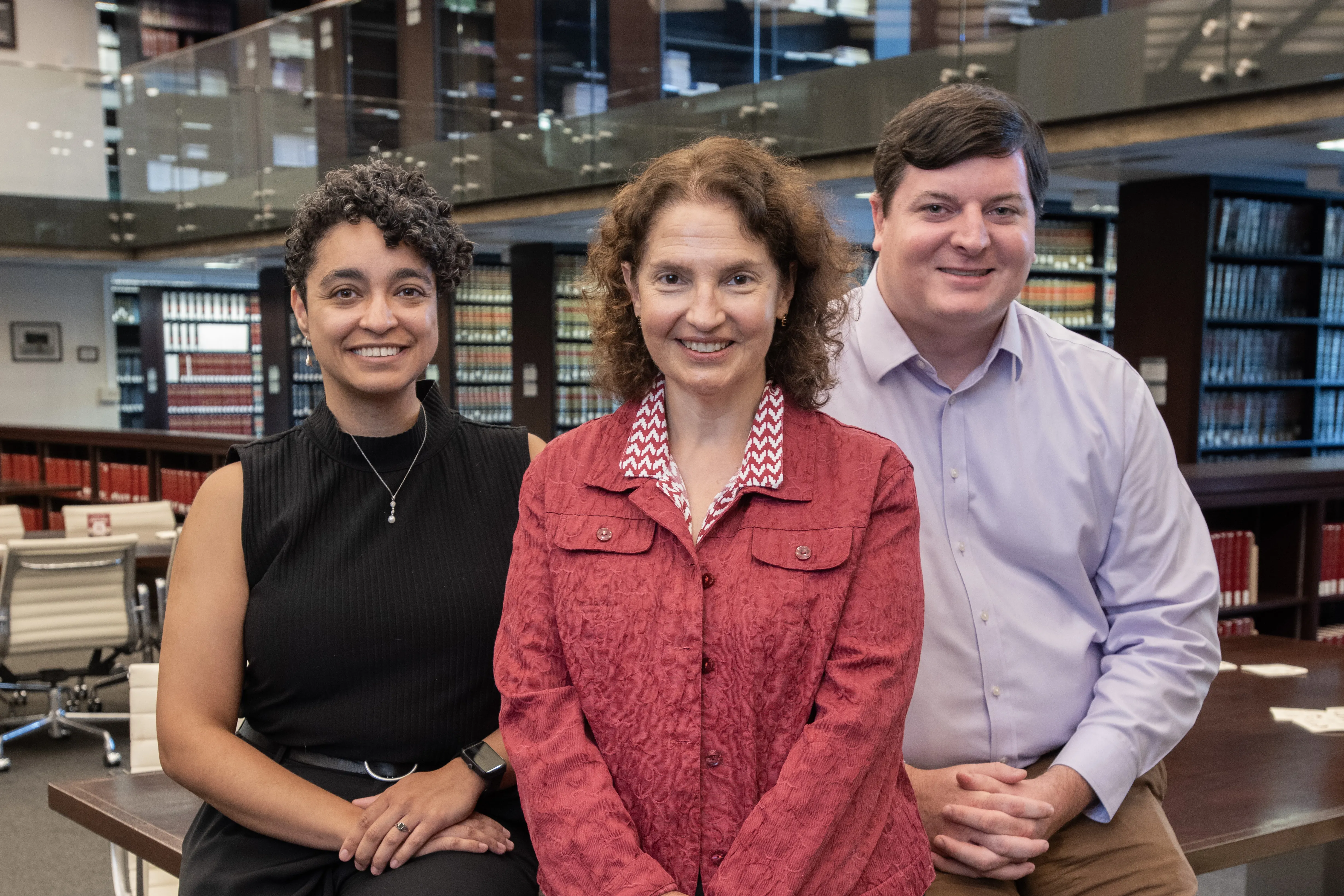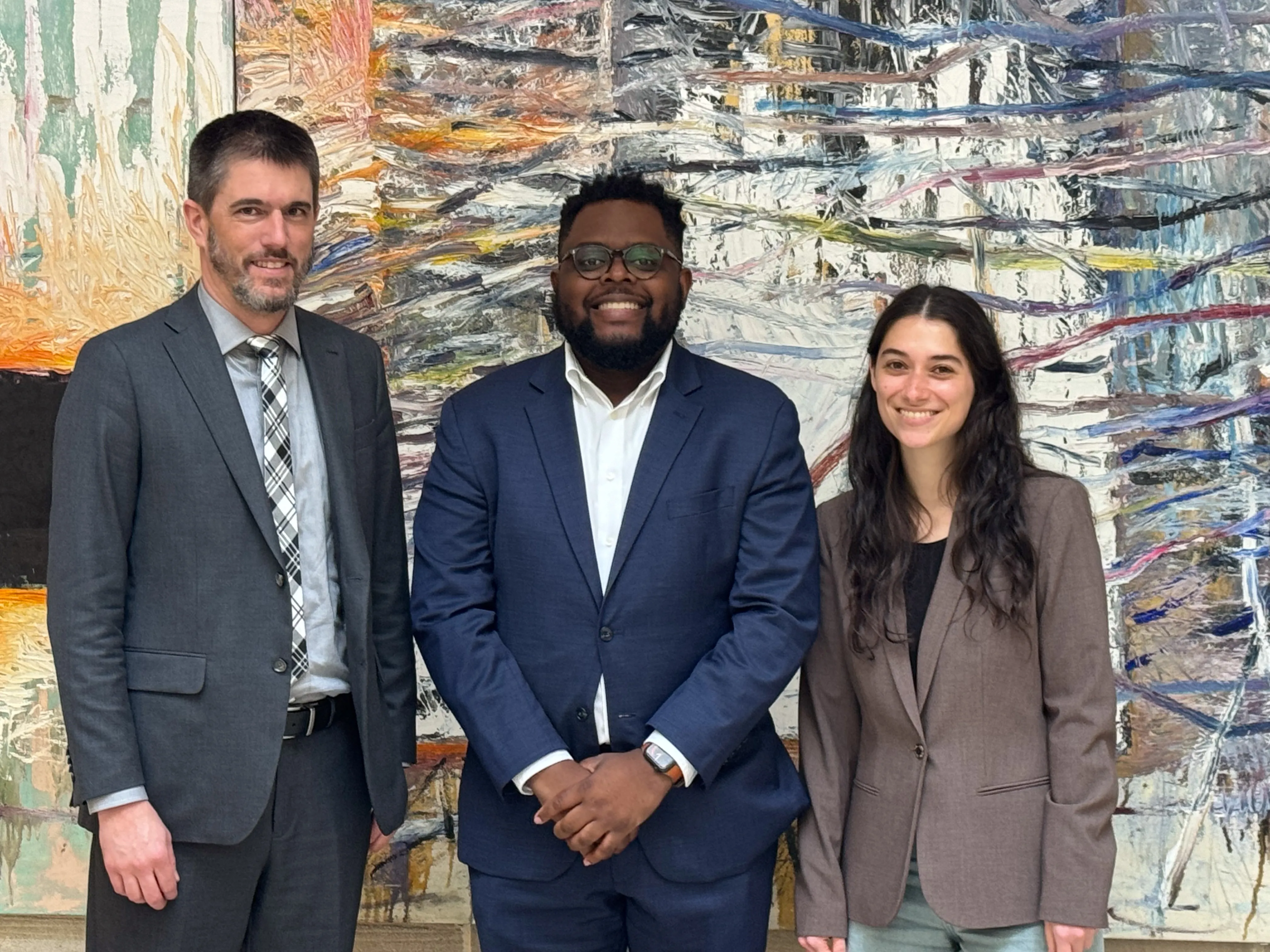Coase-Sandor Institute for Law and Economics Celebrates Ten-Year Milestone
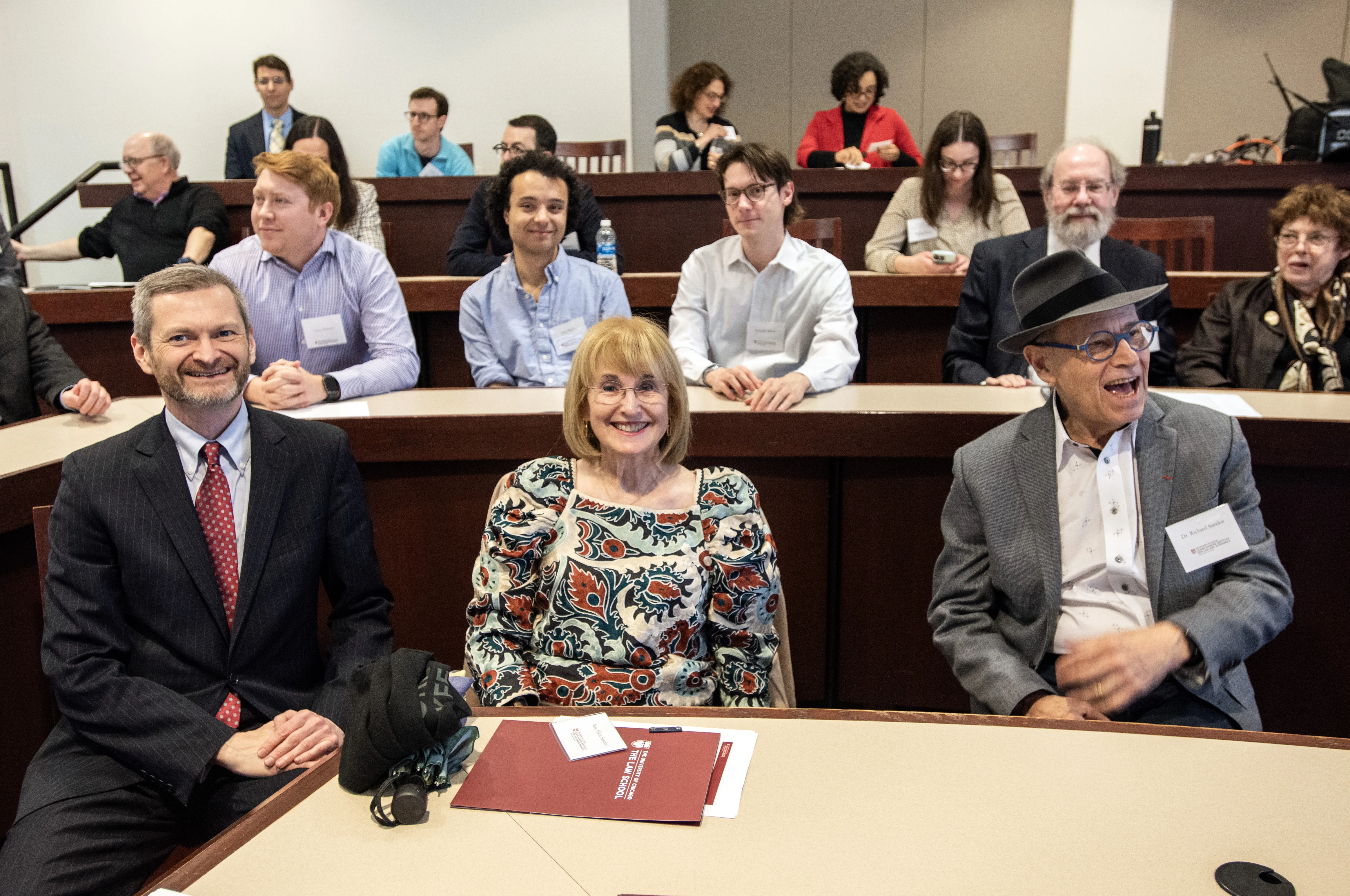
The Law School’s Coase-Sandor Institute for Law and Economics marked its ten-year anniversary this spring with an event that brought together faculty, students, and community members, as well as guests of honor Richard and Ellen Sandor. The celebration commenced at the Law School with a program featuring several faculty and student guest speakers who shared their insights on the transformative nature of the institute’s support of their research. The celebration continued with a post-event reception at the Sandor residence.
The institute first launched in 2011, as the Institute for Law and Economics, with two main goals: support faculty research in the field and provide a platform for disseminating that research to audiences beyond the legal academy. In 2013, the Sandors made an extraordinary $10 million gift in honor of Richard Sandor’s mentor, Nobel Laureate Ronald Coase. This transformative gift revitalized the institute’s efforts, propelling it to new heights over the last decade.
“We created something that never existed in a law school before, and that is a data analysis laboratory,” said Omri Ben-Shahar, the Leo and Eileen Herzel Distinguished Service Professor of Law and the faculty director of the institute. “We hired research assistants specially trained to help faculty working with large datasets. The lab really created the capacity to support faculty research in law and economics and the demand over time kept growing.”
Another cornerstone initiative of the institute has been the Summer Institute, a two-week-long crash course in law and economics for academics. Over the course of its eight-year run, the Summer Institute hosted 533 participants from 26 different countries, fostering a unique global exchange of ideas in law and economics.
Celebrating ten years of impact
Over the past decade, the Coase-Sandor Institute for Law and Economics has become a hub of scholarly productivity, with 34 UChicago faculty members affiliated, producing a staggering 1,262 publications, including books, book sections, and journal articles. The institute’s Law & Economics Working Paper Series on the Social Science Research Network boasts over 312 working papers with nearly 800,000 downloads.
“Everything we have achieved here as an institute is because of our faculty,” said Ben-Shahar. “Our faculty are the ones writing papers, engaging with scholars from all over the world, presenting workshops, and expanding on the law and economics topics that interest them.”
The institute’s data laboratory also saw a significant growth in tools and the hiring of more researchers with specific expertise in designing empirical studies to help faculty execute their research.
“We are now in an era where a lot of people who are studying law with the tools of social science are using more rigorous methods, and with the advent of AI and machine learning models, all of these tools have an enormous effect and potential in understanding laws,” said Ben-Shahar. “This increased support has increased the production of research—which has led us to focus on finding more audiences for the application of that research, particularly in the global scene where law and economics is still relatively new.”
Zhuang (John) Liu, an associate professor of law at Hong Kong University, who received his PhD from the University of Chicago, was one of the guest speakers at the Coase-Sandor Institute’s ten-year celebration. He shared, via Zoom, the global impact of the institute, explaining how his participation in the summer program as a young scholar a few years go not only changed the trajectory of his academic life, but has since influenced generations of young scholars and students in China.
“The practice of including young scholars and students in the summer program and also in the junior faculty workshop has proven to be immensely successful,” said Liu. “These young scholars trained at Chicago have brought about a wave of innovation and legal research in China. They have pioneered new research areas, which were previously nonexistent in the country. For example, they started using massive judicial decision data to study Chinese law and Chinese judiciary.”
The magnitude of Coase-Sandor’s impact on young scholars was echoed by Ana Vasilj, a JD and Economics PhD candidate, who was another guest speaker at the event. She had recently attended the American Association of Law Schools (AALS) conference in D.C. in January, where she presented her research, thanks to the support of Coase-Sandor.
“I feel like us really young researchers are viewed as a high-risk stock,” said Vasilj. “Very few people are willing to invest in us, so I was struck by how welcoming and enthusiastic the Coase-Sandor Institute was and how supportive they were in me going to present my research at AALS.”
Originally from Croatia, Vasilj came to UChicago from Cambridge University to pursue her master’s degree, which drew her to the Economics PhD, and subsequently, to the JD program. “I see the Law School as a place where you don’t just learn what the law is—you learn to recognize it as a set of logistical tools to achieve policy goals X, Y, and Z” she said.
The Sandors are very happy with the impact that their generous gift has made.
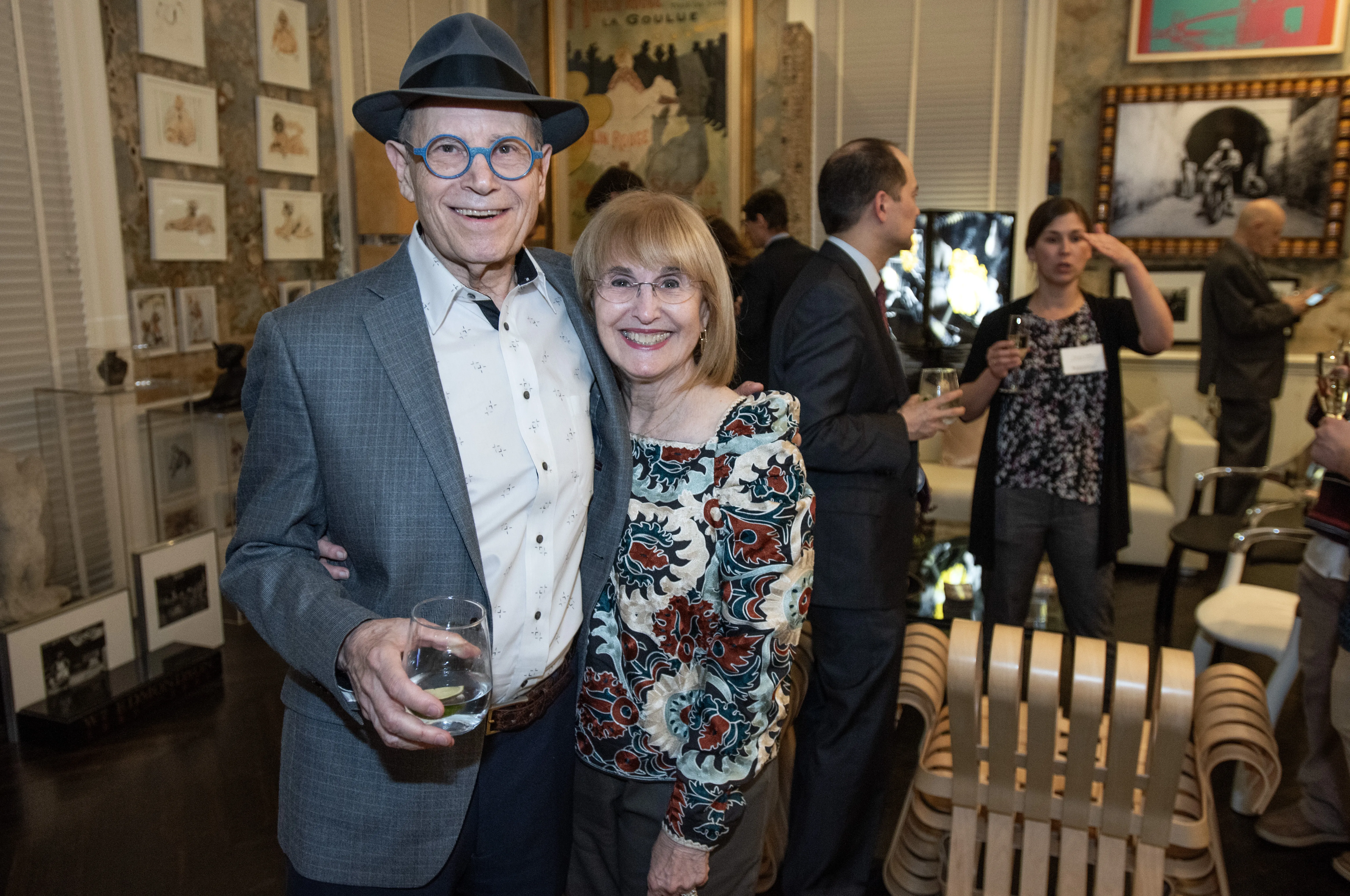
“Ellen and I are absolutely thrilled with the research you are doing,” said Richard Sandor at the ten-year celebration event. “It matches every expectation we had about a free market for ideas. This was the dream. All we wanted to do is to provide resources to students and faculty so they can choose whatever they want to do to advance knowledge and enrich humanity.”
As the institute looks to the future, its legacy of innovation and collaboration promises to help redefine the frontiers of law and economics. Ben-Shahar sees AI and machine learning as playing a key role in breaking these new frontiers.
“The question is, how will law professors who are not trained in computer science or statistics interact with the potential of research on how AI will affect the law?” he said. “We will need to enrich our data lab with trained statisticians, and it will be important to continue to support the collaboration of faculty here with faculty in other departments, especially those in computer science.”
